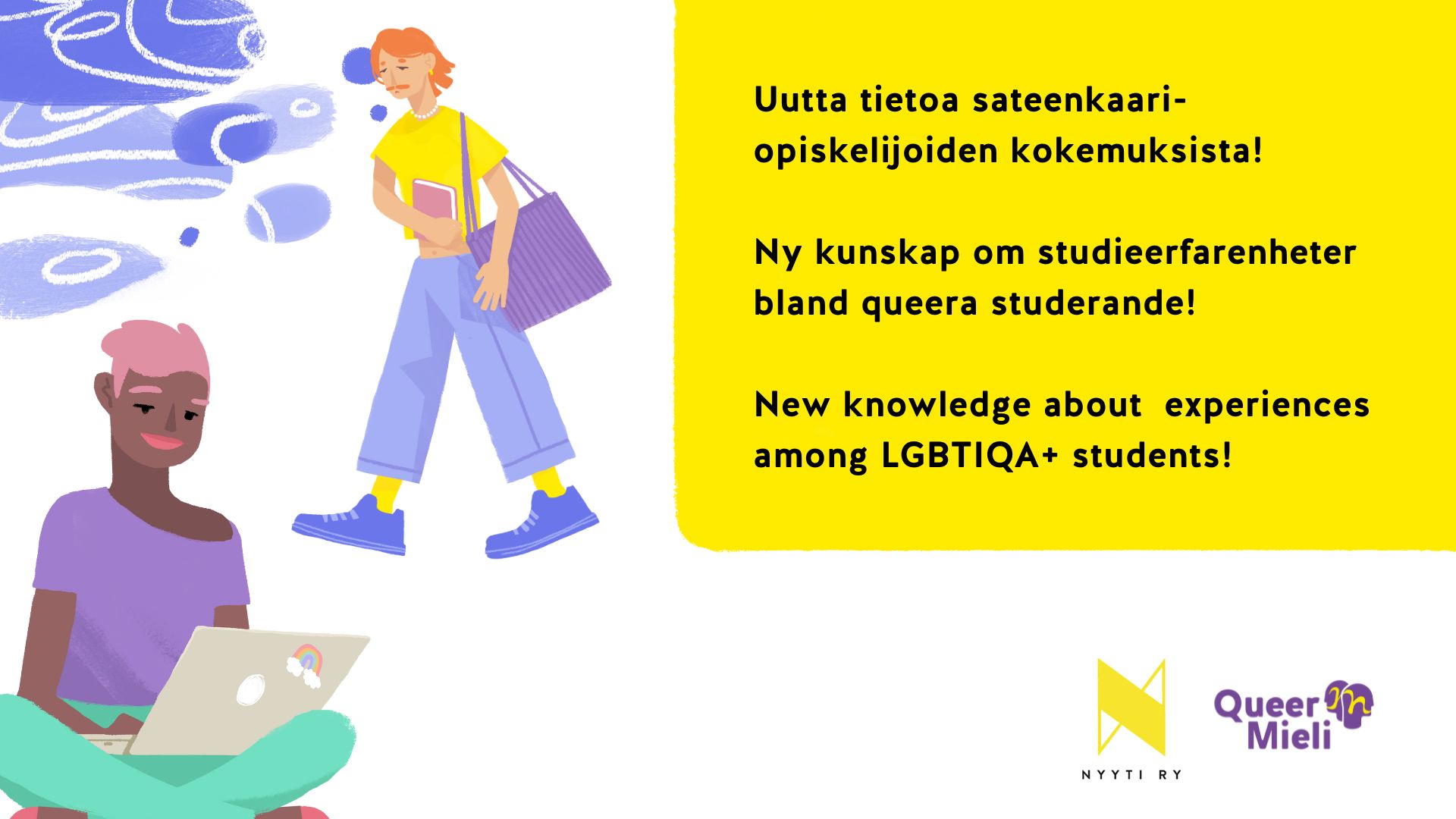We Need to Promote Equality for Queer Students in Higher Education

23.6.2025
A survey conducted as part of Nyyti’s QueerMieli project examined experiences of minority stress and discrimination among students belonging to sexual and gender minorities in higher education and student healthcare. The survey, carried out at the end of 2024, was answered by 612 LGBTQ+ students from various parts of Finland.
82 percent of respondents generally felt that the atmosphere at their university or university of applied sciences was safe for queer people, but more detailed responses revealed a wide range of experiences. 46 percent had witnessed inappropriate behavior towards other queer students, and 54 percent had encountered disturbing cis- or heteronormative assumptions in teaching and study materials. Students who belonged to gender minorities consistently reported more negative experiences compared to those who belonged only to sexual minorities.
“Normative assumptions in everyday academic life sometimes appear as jokes about minorities or belittling of their experiences, but more often as a lack of diversity in teaching materials, students being misgendered, or through comments and actions that unintentionally reinforce prejudice,” summarized project leader Anders Huldén from the QueerMieli project.
Extensive open-ended responses showed that previous experiences of discrimination outside of the higher education community also cause a fear of discrimination. This fear can influence choices of field of study, trust in others, or the courage to seek help when needed. Many respondents also reported encountering other forms of discrimination within the academic community, such as racism, ableism, or discrimination related to relationship diversity.
“According to student barometers, we know that queer students who belong to multiple minorities simultaneously rate their well-being clearly lower than others. That’s why it is important that we, as part of the higher education community, learn to better identify factors that cause minority stress and their effects on study ability,” says researcher Tina Lauronen from the Foundation for Research on Studies and Education (Otus sr), who compiled the "Sateenkaariopiskelijat" information package based on the 2022 and 2019 Student Barometers.
The survey responses also highlighted positive examples of safe learning environments and respectful treatment. Respondents also proposed concrete solutions for creating a safer study environment: inclusive communication, safer space principles, and better consideration of gender diversity in everyday practices and information systems.
“Discrimination and exclusionary structures weaken mental well-being and are risk factors for mental health issues. The commitment of higher education communities and decision-makers to promoting equality and inclusion is crucial for everyone’s mental health, whether or not they belong to a minority,” summarized Nyyti’s Executive Director Minna Savolainen.
Read more about the results of the survey Minority Stress and Experiences of Discrimination in Higher Education:
Also look at the Sateenkaariopiskelijat information package, based on the Student Barometers from 2022 and 2019, made by the Research Foundation for Studies and Education Otus:
For further information about the survey Minority Stress and Experiences of Discrimination in Higher Education, please contact Nyyti:
Anders Huldén
Project Manager
tel. 050 370 2601
anders.hulden@nyyti.fi
Sanni Lehtinen
Senior Specialist
tel. 050 379 5436
sanni.lehtinen@nyyti.fi
For further information about the Sateenkaariopiskelijat information package, please contact the Research Foundation for Studies and Education Otus:
Tina Lauronen
researcher, M. Soc. Sc.
tel. 050 367 7259
tina.lauronen@otus.fi